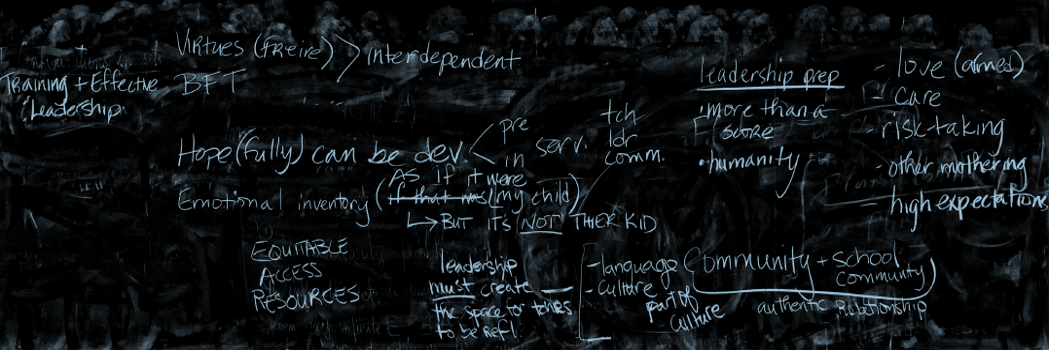The readings this week highlighted for me how deeply ingrained individualism is within schools and within education discourse. This was perhaps best encapsulated by Duncan-Andrade’s citation of Maslow’s hierarchy of needs – a framework that is hyper individualistic, where the top tier is self-actualization and focused on an individual’s needs within a single time frame. I recently learned that Maslow stole his idea for this framework from the Blackfoot nation. However, because his ontological framework was situated in racial capitalism, he adapted and interpreted it through a lens of individualism and capitalism. In the original framework, self-actualization is the foundation that built towards community actualization and then cultural perpetuity, expanding beyond both the individualistic scope of needs and the limitations of a single time frame or dimension of reality. Indeed, the fact that meeting basic needs for survival needs to be explicitly stated or reminded about in a racial capitalist framework is because we have an individualistic rather than collective structure for society – it is not a given that every person should have their basic needs met, nor is it a requirement if the ultimate goal is individual attainment instead of community actualization or cultural perpetuity.
I appreciated Duncan-Andrade’s distinction between hokey, mythical, and deferred hope on the one hand and critical hope on the other, and found it a useful framing to analyze the kinds of “social justice” curriculum I see in my own school and in other “liberal” spaces – either teaching the kind of “pull yourself up by your bootstraps” hokey or mythical hope that he describes as “profoundly ahistorical and depoliticized denial of suffering that is rooted in celebrating individual exceptions” (p. 184), or the damage-framed deferred hope that equates blackness with oppression, existing only through the white gaze, where teachers “have a critique of social inequality but cannot manifest this critique in any kind of transformative pedagogical project” (p. 184), leaving students both demoralized and without agency to exist fully as humans or to imagine or know that there are other ways of being. Duncan-Andrade’s depiction of critical hope challenges both the ahistoricism and problematic damage-framework of these other types of hope by reconnecting us all to the “collective by struggling alongside one another” where “solidarity is the essential ingredient for ‘radical healing’” (p. 190). However, by stating in his conclusion that critical hope is a “factor for improving achievement in urban schools” (p. 190), Duncan-Andrade still places his vision both as in service to individual achievement rather than collective liberation, and also as something only needed in “urban” settings, perpetuating a deficit framework that ignores the tremendous need for developing critical consciousness across all schools and for all children.




hi Lucy: I appreciate your critical analysis of Duncan-Andrade’s ideas, both about Maslow and about the continued focus on individual achievement. As I was poking around on the Internet yesterday in search of other work by Andrade, I found a valuable clip of him being interviewed by a very heavy-handed and testosterone-fueled Marty Linsky. (It’s really worth watching if you are interested in seeing one more episode of Alpha-male behavior.) In the interview, Andrade discussed a set of issues that speaks to your concern about individual v. collective achievement. He says that “the point of education is not to escape poverty; the point of education is to end poverty.” He goes on to note that “We will define success by how much they improve their communities.” I think these quotes and underlying concepts speak to your concern that Andrade is giving himself over too much to that individualistic push that is endemic to American education. Fondly, Jane